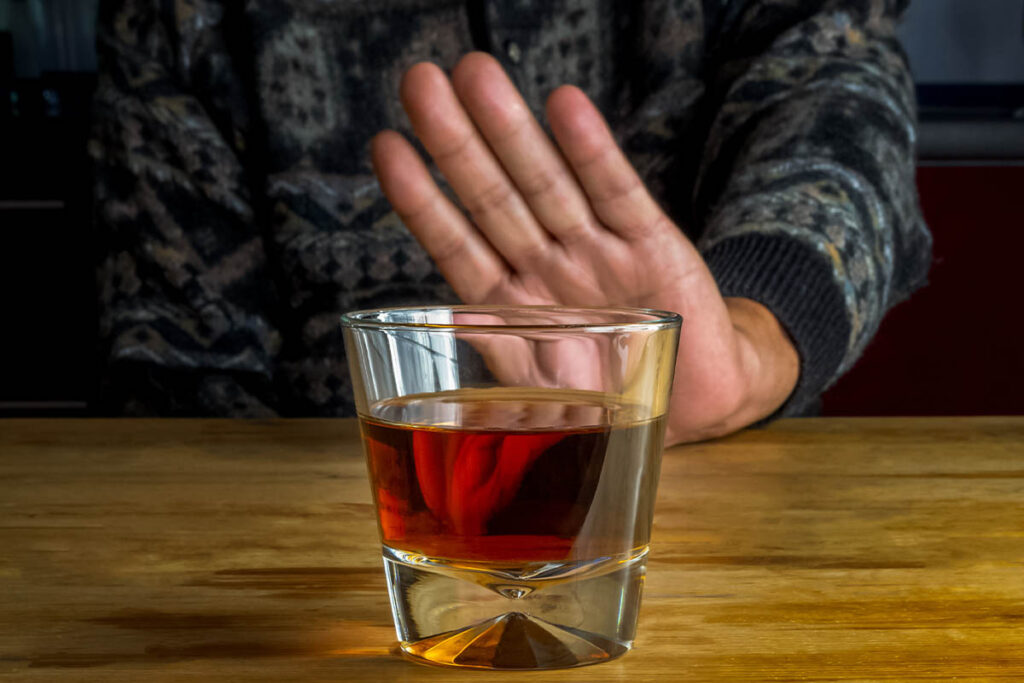Embarking on the journey to sobriety is a courageous step towards reclaiming your health and well-being. However, for individuals dependent on alcohol, the withdrawal process can be daunting and potentially dangerous without proper support and guidance. But, in this comprehensive guide, we’ll explore the essentials of managing alcohol withdrawal treatment at home.
Contents
Importance Of Alcohol Withdrawal Treatment
 Alcohol withdrawal treatment holds significant importance for several reasons:
Alcohol withdrawal treatment holds significant importance for several reasons:
- Safety
Withdrawal from alcohol can lead to severe symptoms, including seizures, hallucinations, and delirium tremens, which can be life-threatening if not managed properly. Treatment helps ensure the safety of individuals undergoing withdrawal by providing medical supervision and interventions to mitigate these risks.
- Symptom Management
Alcohol withdrawal symptoms can be highly distressing and uncomfortable, often leading individuals to relapse to alleviate the discomfort. Treatment helps manage these symptoms through medications, counseling, and supportive care, increasing the likelihood of successful detoxification and long-term sobriety.
- Prevention of Complications
Without proper treatment, alcohol withdrawal can lead to complications such as dehydration, electrolyte imbalances, and cardiovascular issues. Medical supervision during withdrawal helps prevent these complications and ensures any emergent issues are addressed promptly.
- Supportive Environment
Alcohol withdrawal treatment often takes place in a supportive environment, whether it’s a medical facility, detox center, or under the supervision of healthcare professionals at home. This environment provides emotional support, guidance, and resources to individuals undergoing withdrawal, enhancing their chances of successful recovery.
- Addressing Underlying Issues
Alcohol withdrawal treatment is often part of a broader treatment plan for alcohol use disorder (AUD). It provides an opportunity to address underlying issues contributing to alcohol dependence, such as mental health disorders, trauma, or social factors, through therapy and counseling.
- Reducing Relapse Risk
Completing alcohol withdrawal treatment sets the foundation for long-term sobriety by breaking physical alcohol dependence. It equips individuals with coping strategies, relapse prevention techniques, and ongoing support to navigate triggers and challenges in their recovery journey.
In essence, alcohol withdrawal treatment is crucial for ensuring the safety, comfort, and success of individuals seeking to overcome alcohol dependence and embark on a path to sobriety. It provides a structured approach to detoxification, addresses underlying issues contributing to addiction, and offers support for sustained recovery.
12 Best Alcohol Withdrawal Treatment At Home
When considering alcohol withdrawal treatment at home, it’s essential to prioritize safety and comfort. While professional medical guidance is always recommended, here are twelve options and remedies that may help alleviate symptoms:
Hydration
Proper hydration is crucial during alcohol withdrawal to prevent dehydration, which can exacerbate symptoms such as headaches, fatigue, and dizziness. Drinking plenty of water helps flush toxins from the body and maintain electrolyte balance. Alongside water, consuming electrolyte-rich fluids like sports drinks or coconut water can replenish lost minerals, such as potassium and sodium. These are essential for nerve and muscle function.
Nutrition
Alcohol abuse often leads to nutritional deficiencies, as heavy drinking can impair the body’s ability to absorb vitamins and minerals. Therefore, focusing on nutrient-rich foods is crucial during alcohol withdrawal. Incorporating a balanced diet with plenty of fruits, vegetables, lean proteins, and whole grains helps replenish essential nutrients and supports overall health. Foods rich in B vitamins, such as leafy greens, legumes, and whole grains, are particularly important, as alcohol depletes these vitamins.
Supplements
 A vitamin B complex supplement can help replenish B vitamins crucial for nervous system function and energy production. Magnesium supplements may alleviate muscle tension and promote relaxation, while zinc supplements support immune function and wound healing. However, it’s important to consult with a healthcare professional before taking supplements. They will help to ensure proper dosage and avoid potential interactions.
A vitamin B complex supplement can help replenish B vitamins crucial for nervous system function and energy production. Magnesium supplements may alleviate muscle tension and promote relaxation, while zinc supplements support immune function and wound healing. However, it’s important to consult with a healthcare professional before taking supplements. They will help to ensure proper dosage and avoid potential interactions.
Herbal Remedies
Certain herbs have been traditionally used to alleviate anxiety, promote relaxation, and improve sleep quality, which can be beneficial during alcohol withdrawal. Chamomile tea, for example, contains compounds that may have a calming effect on the nervous system, reducing feelings of anxiety and promoting better sleep. Valerian root is another herb commonly used to treat insomnia and anxiety. Similarly, passionflower has been shown to have sedative properties, potentially improving sleep quality.
Deep Breathing and Relaxation Techniques
Deep breathing exercises, meditation, yoga, and progressive muscle relaxation are effective techniques for reducing stress. Also, helps in promoting relaxation during alcohol withdrawal. Deep breathing exercises, such as diaphragmatic breathing or belly breathing, activate the body’s relaxation response. Meditation and mindfulness practices help calm the mind, reduce racing thoughts, and increase awareness of the present moment.
Similarly, yoga combines physical postures, breathwork, and meditation to promote relaxation, flexibility, and emotional balance. Progressive muscle relaxation involves tensing and relaxing different muscle groups sequentially, helping to release tension and promote overall relaxation.
Acupuncture
Research suggests that acupuncture may modulate neurotransmitters, such as serotonin and endorphins, which play a role in mood regulation and pain perception. Also, acupuncture may help regulate the autonomic nervous system, which can become dysregulated during alcohol withdrawal, contributing to symptoms such as increased heart rate and blood pressure. More research is needed to fully understand the mechanisms of acupuncture in treating alcohol withdrawal.
Aromatherapy
Aromatherapy involves the use of essential oils derived from plants to promote physical and psychological wellbeing. Lavender essential oil, for example, is well-known for its calming properties and may help promote relaxation. Peppermint essential oil has invigorating and refreshing qualities that can help alleviate headaches. Citrus essential oils, such as lemon or orange, have uplifting and energizing effects. This can help combat feelings of lethargy and depression often experienced during withdrawal.
Cold Compress
Cold therapy, including the use of cold compresses or ice packs, can be a simple yet effective way to alleviate symptoms such as headaches, fever, and sweating during alcohol withdrawal. Applying a cold compress to the forehead or back of the neck constricts blood vessels, reducing inflammation and providing relief from headache pain. Additionally, cold therapy can help lower body temperature and reduce excessive sweating. Cold compresses can be made by wrapping ice cubes or frozen gel packs in a cloth.
Warm Baths
Adding Epsom salts to a warm bath enhances its therapeutic effects, as Epsom salts contain magnesium sulfate, which can be absorbed through the skin and help relax muscles and alleviate tension. During withdrawal, individuals may experience muscle aches, cramps, and tension, making warm baths with Epsom salts an excellent option for symptom relief. Taking time for self-care with a warm bath can provide a much-needed respite from withdrawal symptoms.
Exercise
Exercise releases endorphins, neurotransmitters that act as natural painkillers and mood enhancers. And, helping to alleviate symptoms of anxiety, depression, and cravings often experienced during withdrawal. Simple activities such as walking, jogging, swimming, or yoga can be effective ways to incorporate exercise into a daily routine during withdrawal. It’s essential to start slowly and listen to your body, gradually increasing intensity as tolerated.
Music Therapy
 Music has a powerful effect on the brain and emotions, making it a valuable tool for managing symptoms. Listening to calming music or nature sounds can help reduce feelings of anxiety, stress, and agitation, providing a sense of comfort and distraction from withdrawal symptoms. Music therapy interventions, such as guided imagery or personalized playlists, can be tailored to individual preferences and needs, enhancing their effectiveness in promoting relaxation and emotional well-being.
Music has a powerful effect on the brain and emotions, making it a valuable tool for managing symptoms. Listening to calming music or nature sounds can help reduce feelings of anxiety, stress, and agitation, providing a sense of comfort and distraction from withdrawal symptoms. Music therapy interventions, such as guided imagery or personalized playlists, can be tailored to individual preferences and needs, enhancing their effectiveness in promoting relaxation and emotional well-being.
Support Network
Friends, family members, support groups, and healthcare professionals can all play vital roles in supporting individuals through withdrawal and helping them stay motivated. Sharing experiences, feelings, and challenges with others who understand can reduce feelings of isolation and shame, fostering a sense of belonging and connection. Support groups offer opportunities for peer support, education, and fellowship, empowering individuals to learn from others’ experiences and share their own.
It’s crucial to consult with a healthcare professional before implementing any at-home remedies, especially if you have underlying health conditions or are taking medications. Additionally, if withdrawal symptoms become severe or unmanageable, seek immediate medical attention.
Conclusion
In conclusion, alcohol withdrawal treatment at home requires careful attention to safety, comfort, and support. While these twelve options and remedies can provide relief from symptoms and promote well-being during the withdrawal process, it’s essential to remember that professional medical guidance is crucial. And, especially for those with severe addiction or co-occurring health conditions.
By prioritizing self-care, seeking support from loved ones, and remaining committed to the journey of recovery, individuals undergoing alcohol withdrawal can take significant steps towards reclaiming their health and building a fulfilling life free from alcohol dependence.
